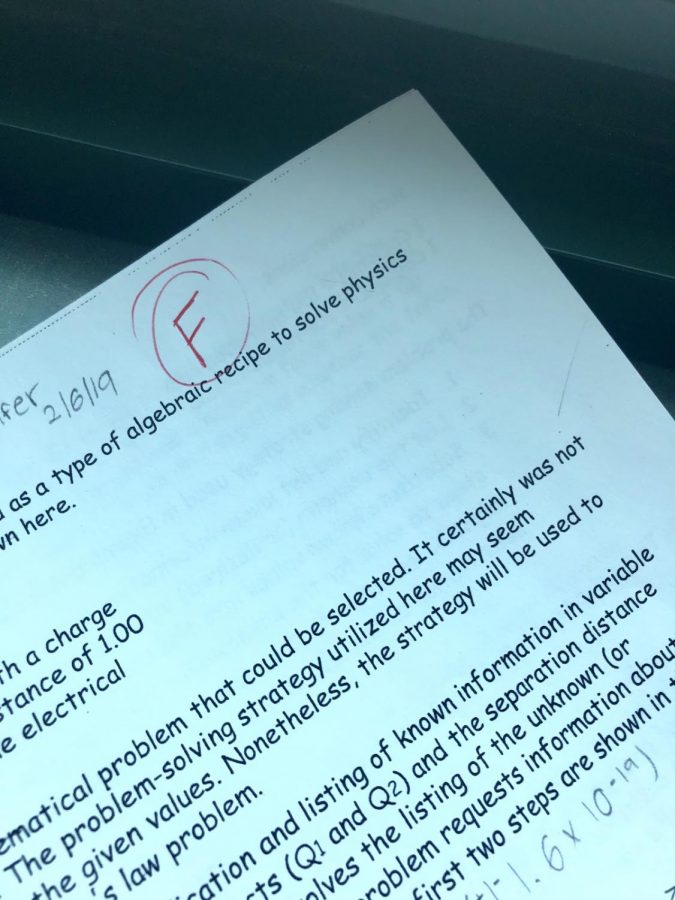First period exams exacerbate student stress
Photo taken by Rebecca Kanfer '21
A Staples sophomore receives a fail on her early morning quiz. Tests given first period decrease students brains the ability to fully comprehend the material given.
It’s 7:30 in the morning: your eyelids are heavy, you’re moving at a snail’s pace and it’s entirely unlikely that you will make it through class without falling asleep. As you sit down at your desk to take your early morning test, your eyes glaze over the equations. You are mentally preparing yourself for what will be coming next: a likely F. At Staples, this is not a rarity.
Quizzes and tests given first period in the morning are inequitable. Teachers should not be able to force their students to begin their school day in this way. Tests that are given first period in the morning decrease a student’s ability to perform well on the test, leaving the student with an inherent disadvantage.
New science suggests that our natural peak productivity is late morning. Our working memory, alertness and concentration gradually improve throughout the day, meaning students taking afternoon tests are better equipped for success.
The brain—much less a developing teenage brain—has not reached its optimal point of comprehension at 7:30 in the morning. If teachers want to ensure the success of their students, they should refrain from testing them a short time after they have woken up. This would decrease the amount of stress on students’ shoulders as well as allow them to be fully alert and awake for their upcoming school day ahead.
Additionally, early morning tests disrupt necessary and important sleep. According to Nationwide Children’s Hospital, the suggested amount of sleep for high school students is around nine hours, but the average amount of sleep high schoolers actually receive is seven hours. These precious hours are cut short due to late night studying and stressing for their upcoming early morning test. If the test were pushed back in the day, students could use a free period or a lunch period to prepare. This would also allow students to increase their sleep nightly so the next day they would be well-rested and ready to perform better on that exam.
I find that giving students tests early in the morning would only increase their already substantial stress. Pushing tests back further into the day would benefit students and would result in better test grades on that designated exam.




















































